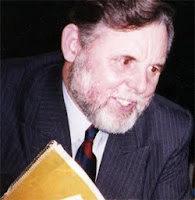1987
4 January - Economists predict that unemployment will fall below 3,000,000 by the end of this year.
20 January - Terry Waite, the special envoy of the Archbishop of Canterbury in Lebanon, disappears in Beirut while negotiating for the release of hostages.
24 February - It is alleged that six Nazi war criminals are living in Britain.
3 March - National Health Service prescription charges rise from £2.20 to £2.40.
6 March - British ferry MS Herald of Free Enterprise capsizes while leaving the harbour of Zeebrugge, Belgium, killing 193 on board.
27 March - Neil Kinnock meets Ronald Reagan in Washington DC.
29 March - Margaret Thatcher visits Moscow.
29 April - Chancellor Nigel Lawson promises that the United Kingdom will soon have an income tax rate of 25p in the pound.
11 May - Margaret Thatcher calls a general election for 11 June.
11 June - The 1987 General Election sees Margaret Thatcher secure her third term in office.
18 June - Unemployment has fallen below 3,000,000 for the first time since late 1981 after the biggest monthly fall in unemployment since records began in 1948 seeing more than 100,000 of the unemployed find jobs in May.
22 June - Race riots break out in the Chapeltown area of Leeds.
25 June - A MORI poll shows support for the Conservative Party stands at almost 50% - the highest during Mrs Thatcher's time as leader.
29 June - 25 years since the first James Bond film was released, the 14th Bond film is released - with the spy now being played by Timothy Dalton.
24 July - Novelist and former Conservative MP Jeffrey Archer wins a libel case against Daily Star over allegations that he was involved in a vice ring.
29 July - The Channel Tunnel is given the go-ahead after Margaret Thatcher and François Mitterrand ratify the Treaty of Canterbury. It is expected to be open within six years.
31 July - The Attorney General institutes legal proceedings against The Daily Telegraph to prevent it publishing details from the book Spycatcher.
6 August - Dr David Owen resigns as leader of the Social Democratic Party after its members vote to merge with the Liberal Party.
30 August - David Owen forms a breakaway SDP.
7 September - Ford completes its takeover of the luxury sports car company Aston Martin.
9-16 September. Hurricane Max, the strongest tropical cyclone of the 1987 Pacific hurricane season, reached its maxium windspeed of 155 mph on 12 September.
23 September - An Australian court lifts the ban on the publication of Spycatcher.
9 October - Margaret Thatcher tells the Conservative Party Conference in Blackpool that she wants to stay in power until at least 1994.
15–16 October - Great Storm: Hurricane force winds batter much of south-east England, killing 23 people and causing extensive damage to property. The storm made landfall in Cornwall, before tracking northeast towards Devon and then over the Midlands, going out to sea via The Wash. The strongest gusts, of up to 100 knots (120 mph), were recorded along the south-eastern edge of the storm, hitting mainly Sussex, Essex and Kent.
18 October - Two days after the end of the storm in south-east England, some 250,000 homes in the region are still without electricity.
19 October - Black Monday: Wall Street crash leads to £50billion being wiped of the value of shares on the London stock exchange.
23 October - Retired English jockey Lester Piggott is jailed for 3 years after being convicted of tax evasion.
3 November - Unemployment in Britain fell last month quicker than in any other European country.
17 November - The government announces that the Poll tax (community charge) will be introduced in April 1990.
18 November - A fire at Kings Cross on the London Underground kills 31 people.
15 December - Channel Tunnel construction is initiated, with completion targeted within seven years.
17 December - A year that has seen an excellent recovery for the British economy ends with unemployment at less than 2,700,000.
29 December - PWL release the Kylie Minogue single I Should Be So Lucky.
Subscribe to:
Comments (Atom)








No comments:
Post a Comment